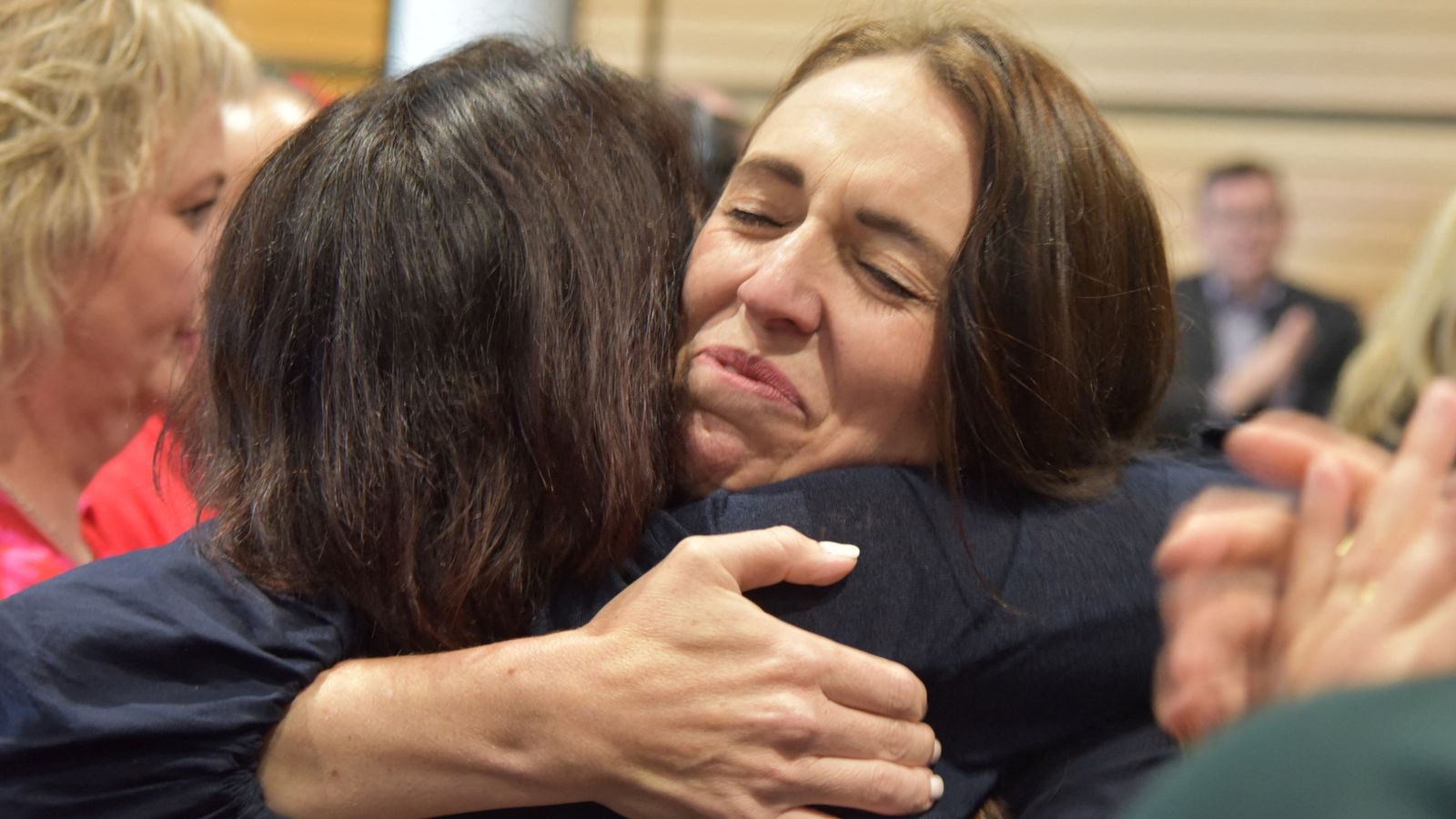Jacinda Ardern ‘driven from office’ by unprecedented hatred and constant abuse, politicians say

Jacinda Ardern said she “slept well for the first time in a long” after announcing she was stepping down as prime minister.
The New Zealand leader revealed she was resigning from the role on Thursday telling reporters she had “nothing left in the tank”.
Ms Ardern said: “I’ll have to admit I slept well for the first time in a long time last night. But yes… still a range of emotions. So of course I feel, you know sad, but also I do have sense of relief.
“I actually feel deeply humbled by the response that I’ve received. To have those messages of gratitude has been really moving for me and for my family.
“I’ll go home for a little bit and just pack, get ready for a bit of time in Wellington. Focus for the team obviously is on selecting a new leader of the Labour Party and therefore a new prime minister for New Zealand.
“It’s an incredibly important decision and the team is very, very focused.”
And some political allies in New Zealand have suggested she took the decision to leave due to the level of abuse she received during her time in power.
Former New Zealand Prime Minister Helen Clark said she felt “deep sadness” on learning of the resignation.
“The pressures on Prime Ministers are always great, but in this era of social media, clickbait, and 24/7 media cycles, Jacinda has faced a level of hatred and vitriol which in my experience is unprecedented in our country,” she said.
Advertisement
“Our society could now usefully reflect on whether it wants to continue to tolerate the excessive polarisation which is making politics an increasingly unattractive calling.”
Debbie Ngarewa-Packer, Maori party co-leader, thanked Ms Adern for her service, but said she had faced “ugly attacks”.
“It is a sad day for politics where an outstanding leader has been driven from office for constant personalisation and vilification,” she said.
“Her whanau [family] have withstood the ugliest attacks over the last two years with what we believe to be the most demeaning form of politics we have ever seen.”
Ms Ardern has received widespread praise from leaders around the world after announcing she would be stepping down but has faced mounting political pressures at home in recent months.
Her Labour party has been struggling in the polls, with a Taxpayers Union-Curia poll released on Friday using data before Ms Ardern stepped down saw the party’s popularity fall to 31.7%, down from 1.4% last month, with the opposition New Zealand National Party on 37.2%.
Nevertheless, Ms Ardern’s announcement that 7 February would be her last day as prime minister after five and a half years in office came as a shock to the nation of five million people own.
Asked if misogyny played a role in her decision to leave, Ms Ardern said: “No, it did not, and my strong message to women in leadership, and girls who may be considering leadership in the future is: This is a place where foundations have been laid long before me to make it possible for us to be in these roles in a way that in the past it just wasn’t in the same way.
Read more on Jacinda Ardern:
Jacinda Ardern may be dodging humiliation by quitting now
From Jacindamania to an empty tank, how NZ PM’s empathy defined her role
Why Jacinda Ardern’s ‘rare’ admission about her mental health matters
Please use Chrome browser for a more accessible video player
2:24
Ardern breaks down as she announces resignation
“You can have a family and be in these roles, you can lead in your own style. Is there more work to do? Yes, but that was not the cause for my departure.”
Lawmakers in her Labour Party will vote for a new leader on Sunday.
If no candidate gets at least two-thirds support from the caucus, then the leadership contest will go to the wider party membership.
Ms Ardern has recommended the party chose her replacement by the time she steps down.
The next general election in New Zealand is scheduled for 14 October.